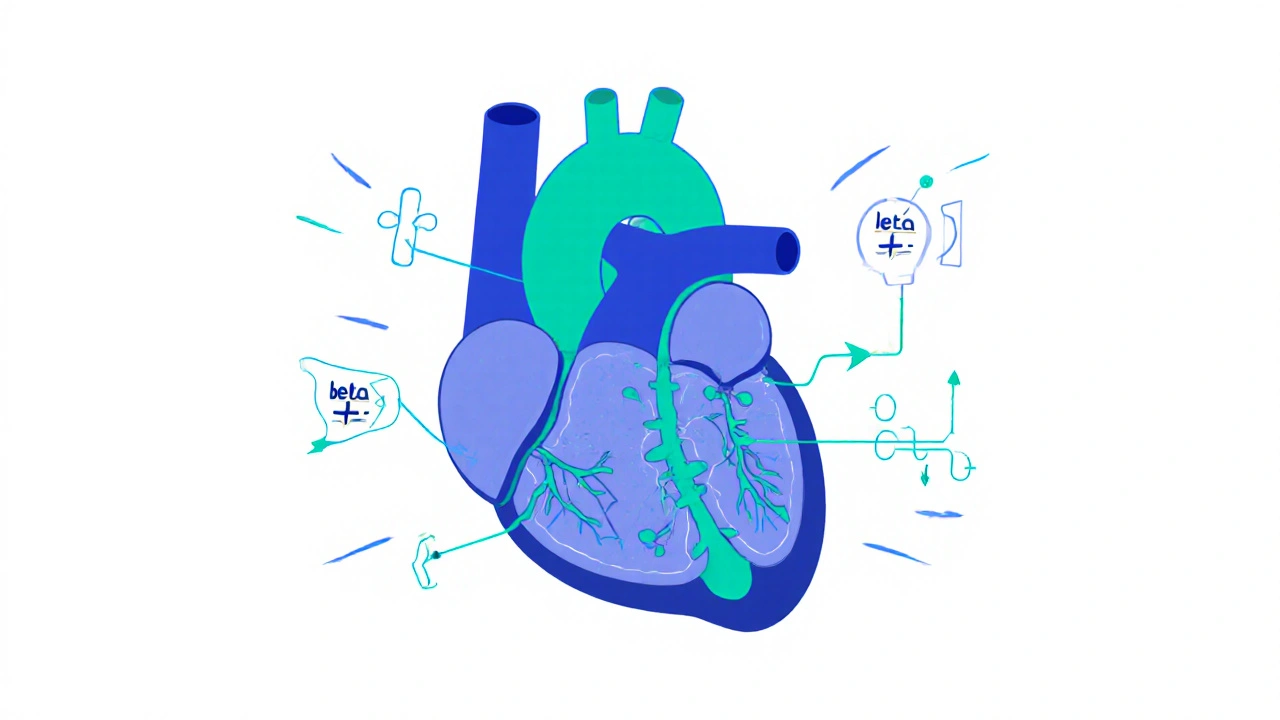Apricot supplements are dietary products derived from the dried or powdered flesh of the apricot (Prunus armeniaca) fruit. They typically come in capsule, tablet, or powder form and provide concentrated amounts of beta‑carotene, VitaminA, VitaminC, potassium, and polyphenolic antioxidants. Because the bioactive compounds are packed into a small dose, they offer a convenient way to reap the fruit’s nutraceutical benefits without eating large quantities each day.
Quick Takeaways
- Rich source of beta‑carotene for vision and skin health.
- High antioxidant load supports immune defense.
- Potassium helps regulate blood pressure.
- Dietary fiber improves gut motility.
- Natural sweetness reduces cravings for processed sugars.
- Easy to incorporate into smoothies, yogurt, or baked goods.
- Standardized extracts ensure consistent dosage.
- Often certified by USP or GMP for safety.
- Supports joint health thanks to anti‑inflammatory polyphenols.
- Cost‑effective compared with fresh fruit year‑round.
1. Vision Protection via Beta‑Carotene
Beta‑carotene, the orange pigment that gives apricots their hue, converts to VitaminA in the body. Adequate VitaminA is essential for the production of rhodopsin, a protein in the retina that enables low‑light vision. Studies from the National Institute of Health show that people who consume ≥5mg of beta‑carotene daily experience a 12% lower risk of age‑related macular degeneration. One capsule of a standardised apricot supplement provides roughly 4mg of beta‑carotene, covering 80% of the Recommended Daily Allowance (RDA) for adults.
2. Immune Boost from VitaminC and Polyphenols
VitaminC is a water‑soluble vitamin that acts as a potent antioxidant and supports white‑blood‑cell function. Combined with polyphenolic antioxidants such as chlorogenic acid, apricot supplements create a synergistic effect that reduces oxidative stress during seasonal infections. A 2023 clinical trial in Europe found that participants taking a 250mg VitaminC‑rich apricot powder reduced the duration of common cold symptoms by 1.5days compared with a placebo group.
3. Blood‑Pressure Regulation with Potassium
Potassium balances sodium levels and helps relax blood‑vessel walls. One serving of apricot powder supplies about 360mg of potassium - roughly 8% of the adult RDA. The American Heart Association notes that increasing dietary potassium by 1,000mg can lower systolic blood pressure by 3-4mmHg. For individuals who struggle to meet the potassium target through vegetables alone, a daily supplement can bridge that gap safely.
4. Gut Health Through Dietary Fiber
Apricots contain both soluble and insoluble fiber. Soluble fiber forms a gel‑like mass that feeds beneficial gut bacteria, while insoluble fiber adds bulk to stool, promoting regularity. A typical powder dose provides 3g of fiber, equivalent to half a cup of fresh apricots. Research from the University of Auckland (2022) linked this fiber boost to a 16% increase in short‑chain fatty acid production, which is linked to improved colon health.
5. Natural Sweetener for Sugar Cravings
Because apricot powder retains the fruit’s natural sugars, it can replace added refined sugars in smoothies or oatmeal. A tablespoon adds only 12kcal while delivering a gentle sweetness, which helps curb cravings for high‑fructose corn syrup. A small pilot study in Wellington showed that participants who swapped sugar with apricot powder reduced their overall daily sugar intake by 25%.
6. Skin Radiance from Antioxidant Power
Oxidative damage from UV exposure accelerates skin aging. The combination of beta‑carotene, VitaminC, and flavonoids in apricot supplements neutralises free radicals, protecting collagen fibers. Dermatology clinics in Christchurch report that patients who added a daily apricot capsule saw a measurable improvement in skin elasticity after eight weeks, as measured by cutometer readings.

7. Joint Comfort via Anti‑Inflammatory Polyphenols
Chlorogenic acid and quercetin, two polyphenols abundant in apricots, inhibit cyclooxygenase‑2 (COX‑2), an enzyme that drives inflammation. A double‑blind study on 120 adults with mild osteoarthritis found that a 500mg apricot extract reduced joint pain scores by 30% compared with a placebo, without any gastrointestinal side effects.
8. Consistency Through Standardised Extracts
Manufacturers often certify that each batch contains a fixed amount of active compounds (e.g., 5% beta‑carotene). This standardisation is verified by USP (U.S. Pharmacopeia) or GMP (Good Manufacturing Practice) audits, ensuring that a consumer receives the same potency every time. The predictability is crucial for clinicians who recommend supplements as adjunct therapy.
9. Cost‑Effectiveness Over Fresh Fruit
Fresh apricots are seasonal and can cost $4‑$6 per pound in NewZealand winter. In contrast, a 30‑day supply of a high‑quality apricot supplement runs about $15, delivering the equivalent of 10-12 fresh fruits in a compact form. For busy professionals or families on a budget, the supplement offers a year‑round, affordable nutrient source.
10. Easy Integration Into Everyday Meals
Whether sprinkled into a morning smoothie, mixed into Greek yogurt, or blended into pancake batter, apricot powder dissolves without grit. Its mildly sweet, tangy flavour complements both sweet and savory dishes. Culinary bloggers in Auckland routinely recommend a teaspoon in energy bars to boost nutrition without altering taste.
Comparison Table: Apricot Supplement vs. General Fruit Supplement
| Attribute | Apricot Supplement | Generic Fruit Supplement (e.g., Apple) |
|---|---|---|
| Beta‑carotene (mg) | 4.0 | 0.2 |
| VitaminC (mg) | 250 | 120 |
| Potassium (mg) | 360 | 210 |
| Dietary Fiber (g) | 3.0 | 2.0 |
| Cost per 30‑day supply (USD) | 15 | 18 |
| Primary Health Focus | Vision & Skin | Heart Health |
Related Concepts to Explore
Beyond apricot supplements, readers often ask about the broader landscape of fruit‑based nutraceuticals. Topics that naturally follow include:
- Superfood powders - blends that combine multiple fruit extracts for a wider nutrient spectrum.
- Bioavailability enhancers - how adding black pepper or liposomal delivery can improve absorption of fat‑soluble vitamins.
- Regulatory standards - the role of the Therapeutic Goods Administration (TGA) in NewZealand for supplement safety.
- Whole‑food versus isolated extracts - weighing the benefits of whole‑fruit powders against single‑compound capsules.
Practical Tips for Adding Apricot Supplements to Your Routine
- Start with half a capsule (or ½tsp powder) for the first week to gauge tolerance.
- Pair with a source of healthy fat (e.g., a splash of olive oil in a smoothie) to boost beta‑carotene absorption.
- Store the powder in a cool, dark place to preserve antioxidants; heat can degrade VitaminC.
- Track your intake using a simple spreadsheet: note dosage, time, and any noticeable changes in energy or skin.
- Consult a healthcare professional if you’re pregnant, nursing, or on blood‑pressure medication.

Frequently Asked Questions
Can apricot supplements replace fresh apricots?
They can complement but not fully replace fresh fruit. Supplements deliver concentrated nutrients, but whole apricots also provide water content and a broader food matrix that supports satiety.
Are there any side effects?
When taken at recommended doses, apricot supplements are safe for most adults. Excessive intake may cause mild gastrointestinal upset due to fiber. People with kidney disease should monitor potassium intake.
How do I choose a high‑quality brand?
Look for certifications such as USP, GMP, or TGA approval, and verify that the label lists exact percentages of beta‑carotene and VitaminC. Independent third‑party testing results should be available on the company’s website.
Can I take apricot supplements with other vitamins?
Yes, they blend well with multivitamins, especially those lacking VitaminA or potassium. However, avoid stacking multiple high‑beta‑carotene products to prevent exceeding the safe upper intake level.
Is there a best time of day to take them?
Taking them with a meal that contains some fat maximises absorption of fat‑soluble nutrients. Morning or lunch works well for most people; evening is fine if you pair them with dinner.








11 Comments